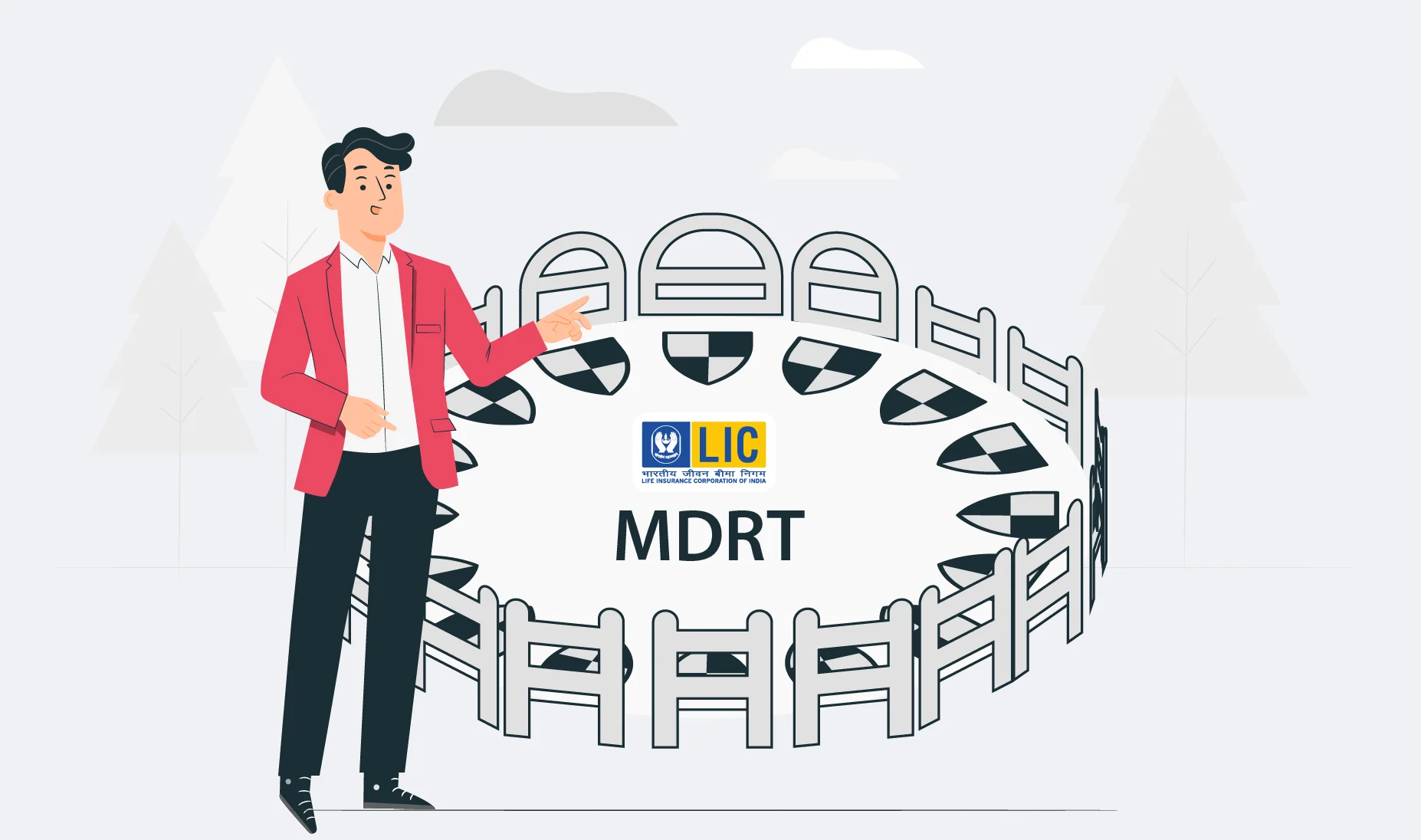What is the Rider Benefit of Life Insurance?
.jpg)
Life insurance is a financial product that provides for the security of your family in case of an accident or other mishap. Standard policies however may not always cover particular risks or situations that may occur in life.
This is where insurance riders come in handy! An insurance rider is an option that lets you add a feature to your basic policy to suit your needs. In this article, we will try to explain what life insurance riders are and why they may be useful for you.
.jpg)
What Are Life Insurance Riders?
An insurance rider is an optional add-on feature that adds extra benefits to a standard life insurance policy. Riders are adaptive to needs that are not covered by the base plan.
Key Features of Life Insurance Riders:
They’re available at an extra premium usually lower than buying a separate policy for the same coverage.
You can customise riders as per your financial goals and life stage requirements.
Riders are usually paid out to riders as lump sums or as policy enhancements when the covered event occurs.
For instance, a critical illness rider can be added to the policy to provide financial support in the event the policyholder is diagnosed with a covered illness, thus lessening the financial burden of medical expenses.
Types of Life Insurance Riders You Should Know
Riders are classified into several types to meet their needs. Here are some of the most common ones:
1. Critical Illness Rider
If the policyholder is diagnosed with critical illness – for instance, cancer, heart attack, or stroke – a lump sum payout is paid. It is used to pay for treatment, recovery or to replace your income.
Key Features:
They cover major critical illnesses (as specified in the policy).
This helps to control large medical bills.
2. Terminal Illness Rider
The role of this rider is to give financial support to the policyholder if the policyholder is diagnosed with a terminal illness and has a very short life expectancy. This assures that the family is financially solid in a rough time.
Key Features:
It pays out a part of the sum assured in advance.
It can be used to pay off medical bills or debts.
3. Accidental Death Rider
If the policyholder dies in an accident, an additional sum assured is paid to the nominee. It improves the base policy from a financial protection point of view.
Key Features:
Covers accidental deaths.
It provides financial security extra for the family.
4. Waiver of Premium Rider
This rider waives off future premiums if the policyholder gets permanently disabled or critically ill and cannot pay premiums. It doesn’t take any financial strain on the insured to be active.
Key Features:
Ensures that the policy remains ongoing.
It reduces the policyholder’s financial burden.
5. Income Benefit Rider
This rider assures the nominee of regular payments in case of the policyholder’s death and supplies the essential income to take care of the household expenses on a regular basis.
Key Features:
It provides periodic payments over some period.
It’s good for families whose income depends on the policyholder.
Benefits of Adding Riders to Your Life Insurance Policy
The riders are meant to make your policy more functional in covering you for anything that may happen. Here are the key benefits of life insurance riders:
1. Customised Coverage
Riders are designed to allow you to tailor your policy to address specific risks – so that your policy covers what you need it to.
2. Cost-Effective
It’s cheaper to add riders to an existing policy than to buy standalone policies for the same benefits.
3. Enhanced Financial Security
Riders like the accidental death rider or critical illness rider provide additional payouts, ensuring your family’s financial stability during unforeseen events.
4. Flexibility
You can select riders according to your life stage, income and future financial goals. This means that your policy will be relevant over time.
5. Comprehensive Protection
Riders fill the holes in standard policies, offering all-around protection against certain risks like illness, accidents or loss of income.
How to Choose the Right Life Insurance Riders for Your Needs
Your financial goals, lifestyle and risk profile will determine which riders you should select. Here are some tips to help you make the best decision:
1. Evaluate Your Needs
Evaluate your current life stage and financial commitments. For instance:
An income benefit rider can help your family stay financially stable if you’re the sole breadwinner.
If you are at risk of critical illnesses, you must consider a critical illness rider.
2. Understand Rider Features
There are specific terms and conditions for each rider. Read the policy document carefully to know what is covered, what is not covered and claim procedures.
3. Compare Premiums
Riders add to the premium cost but the added benefits usually outweigh the additional expense. Compare plans and make sure you’re getting your money’s worth on platforms such as Paybima.
4. Check Claim Settlement History
Choose insurers with a good claim settlement ratio so that your or your beneficiaries' claims processes are not disrupted.
5. Consider Long-Term Benefits
Riders like the waiver of premium rider ensure that your policy remains active even in challenging times, providing long-term protection.
In simple terms, a life insurance rider is an add-on feature to a standard life insurance policy that increases the coverage. Specific needs, such as critical illnesses, accidental death, or waiver of premiums are addressed by riders.
Common riders include:
Critical illness rider
Terminal illness rider
Accidental death rider
Waiver of premium rider
Riders add to the total premium of your policy. However, the cost is lower than if you were to purchase standalone policies for the same benefits.
Yes, riders help you opt to tailor your policy as per your financial goals and risk profile. One or more riders can be added to extend your coverage.

Author Bio
Paybima Team
Paybima is an Indian insurance aggregator on a mission to make insurance simple for people. Paybima is the Digital arm of the already established and trusted Mahindra Insurance Brokers Ltd., a reputed name in the insurance broking industry with 17 years of experience. Paybima promises you the easy-to-access online platform to buy insurance policies, and also extend their unrelented assistance with all your policy related queries and services.
Other Life Insurance Products
Latest Post

Cancer is a lethal disease and the global mortality rate due to cancer was over 9.7 million in 2022, which is likely to reach 15.3 million by 2040 as per National Cancer Institute, USA. With such a staggering number, the fear of cancer among people is genuine. To fight cancer and to get treatment in the best cancer hospital, it is important to have a health insurance plan covering the disease. In this post, we are discussing the best Cancer Hospitals in India for cancer treatment.


Dates are among the healthiest dry fruits grown in several countries and are widely available in fresh and dry form. Despite their sweetness, Dates are healthy because they are fiber-rich and have a low glycaemic index. Dates are great for soothing your appetite, especially when you crave sweets. Whether you eat dates as snacks or use them to make sweet delicacies, you are sure to get several health benefits from them. Likewise, dry dates are also equally beneficial as they have enough fiber and include several vitamins and minerals. In this blog,
let's learn about the health benefits of dry dates.


Looking to invest in a beneficial Indian Government Investment Scheme/Plan? If so, you have landed on the right page. Read on to know more about the best government investment schemes in 2025.


Traffic lights and other traffic rules are made for the safety and security of the public. Maintaining these regulations while driving on the road is crucial and every vehicle owner, two-wheeler or four-wheeler, should follow them. Moreover, there are harsh penalties levied against those who disobey traffic signals. Hence, it is important to follow traffic lights to avoid penalties or challans. You will learn more about the penalties or challans of breaking traffic rules in this post.


When it comes to insurance companies in India, LIC, or the Life Insurance Corporation of India is counted among the most trusted names. It is one of the oldest and most reliable insurance companies in India. LIC has a large number of agents working across the country to sell policies. The company rewards its best agents through commissions and global recognitions. LIC agents who demonstrate exceptional work and client service are recognized as members of the MDRT or the million-dollar round table. In this post, let us discuss MDRT in LIC, understand its eligibility criteria, and how to become an MDRT agent.


